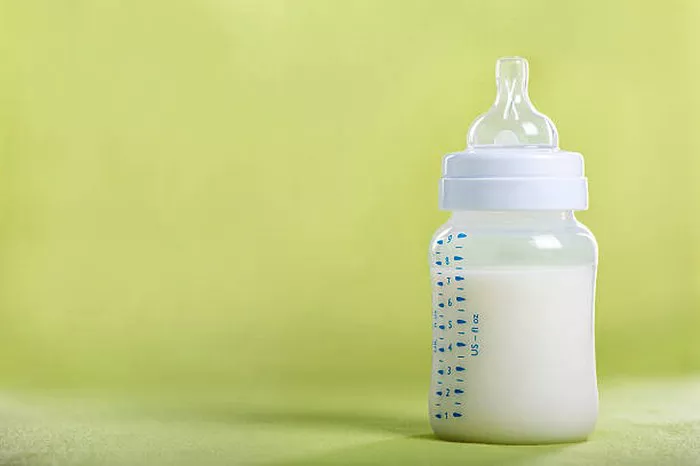When it comes to choosing the best feeding options for their infants, parents have a multitude of choices to consider. Among these options, glass baby bottles have gained popularity for several compelling reasons. From health and safety concerns to environmental impact and aesthetic preferences, glass baby bottles offer a range of benefits that make them a preferred choice for many families.
Health and Safety
One of the primary reasons parents opt for glass baby bottles is their commitment to ensuring the health and safety of their infants. Unlike plastic bottles, glass bottles do not contain harmful chemicals such as bisphenol A (BPA), which has been linked to various health issues. BPA is a synthetic compound found in many plastic products, including baby bottles, and has been associated with hormonal imbalances and developmental problems in infants and children. By choosing glass bottles, parents can eliminate the risk of exposing their babies to such harmful substances.
Moreover, glass bottles offer the advantage of being easily sanitized at high temperatures without the risk of leaching. This means that parents can effectively sterilize glass bottles to eliminate bacteria and other contaminants, providing a clean and safe feeding environment for their infants. The non-porous surface of glass also prevents the absorption of odors and flavors, ensuring that each feeding is fresh and free from any residual tastes or smells.
Durability and Longevity
Contrary to common misconceptions, glass baby bottles are remarkably durable and resistant to scratches. While it is true that glass may break if dropped on a hard surface, modern glass bottles are designed to withstand everyday use without shattering easily. In fact, many glass baby bottles are made from tempered glass, which is highly resistant to breakage and can withstand sudden changes in temperature.
Additionally, the smooth surface of glass bottles makes them easier to clean and less likely to harbor bacteria compared to plastic bottles, which can develop scratches and crevices over time. By choosing glass bottles, parents can ensure that their baby’s feeding equipment remains hygienic and safe for extended periods, reducing the need for frequent replacements.
Environmental Impact
In an age where environmental sustainability is a growing concern, many parents are turning to glass baby bottles as a more eco-friendly alternative to plastic. Unlike plastic bottles, which contribute to the mounting problem of plastic pollution, glass bottles are fully recyclable and can be reused indefinitely without losing their integrity. By opting for glass bottles, parents can reduce their carbon footprint and minimize the environmental impact of their baby’s feeding accessories.
Furthermore, the production of glass bottles typically involves fewer harmful chemicals and pollutants compared to plastic manufacturing processes, making glass a more environmentally responsible choice overall. By choosing glass over plastic, parents can play a small but significant role in preserving the planet for future generations.
Cost-Effectiveness
While the initial cost of glass baby bottles may be higher than their plastic counterparts, their longevity and durability ultimately make them a cost-effective investment. Unlike plastic bottles, which may need to be replaced frequently due to wear and tear, glass bottles can last for years with proper care. This means that parents can save money in the long run by choosing glass bottles, as they will not need to constantly replenish their supply of feeding equipment.
Moreover, the resale value of glass baby bottles tends to be higher than that of plastic bottles, as they retain their quality and functionality over time. This means that parents can recoup some of their initial investment by selling or donating their gently used glass bottles once their baby has outgrown them, further enhancing their cost-effectiveness.
Taste and Odor
Another advantage of glass baby bottles is their ability to maintain the purity of the contents without retaining any odors or tastes from previous feedings. Unlike plastic bottles, which can absorb odors and flavors over time, glass bottles remain odor-free and neutral, ensuring that each feeding is fresh and uncontaminated. This is particularly important for breastfed babies who may be sensitive to changes in taste or smell, as well as for parents who wish to avoid exposing their infants to artificial additives or residues.
Compatibility with Breast Pumps
For breastfeeding mothers who also use breast pumps, the compatibility of baby bottles with their pumping equipment is a crucial consideration. Many glass baby bottles are designed to be compatible with common breast pumps, allowing mothers to express milk directly into the bottles without the need for additional transfer containers. This not only saves time and effort but also minimizes the risk of contamination and waste associated with transferring milk between different containers. By choosing glass bottles that are compatible with breast pumps, breastfeeding mothers can streamline their feeding routine and ensure the safe storage and handling of breast milk for their infants.
Aesthetic and Variety
Beyond practical considerations, some parents are drawn to glass baby bottles for their aesthetic appeal and variety of designs. Glass bottles often feature sleek and modern designs that appeal to discerning parents who prioritize style and aesthetics. Additionally, glass bottles are available in a wide range of sizes, shapes, and colors, allowing parents to choose the perfect bottle to suit their baby’s needs and preferences.
Furthermore, glass bottles can be personalized or customized with decorative elements such as engraved patterns, silicone sleeves, or colorful accents, adding a touch of individuality and flair to each feeding experience. This level of customization and personalization sets glass bottles apart from their plastic counterparts, making them a popular choice among parents who value uniqueness and style.
In conclusion, the decision to buy glass baby bottles is influenced by a combination of factors, including health and safety concerns, durability and longevity, environmental impact, cost-effectiveness, taste and odor considerations, compatibility with breast pumps, and aesthetic preferences. By weighing these factors carefully and choosing glass bottles that meet their specific needs and priorities, parents can provide their infants with a safe, healthy, and enjoyable feeding experience while also making a positive impact on the environment and their own budget.


